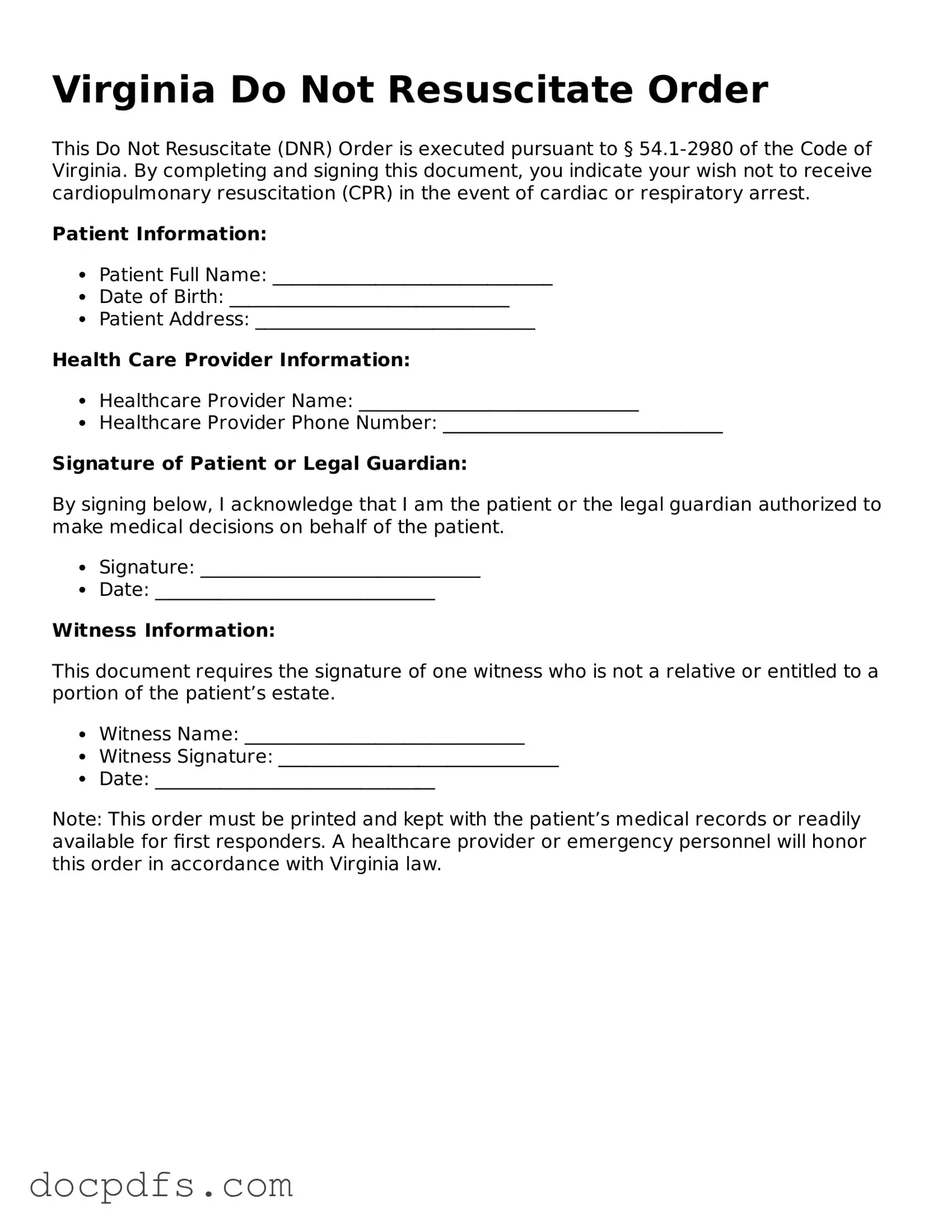Free Virginia Do Not Resuscitate Order Form
A Virginia Do Not Resuscitate (DNR) Order form is a legal document that allows individuals to express their wishes regarding resuscitation efforts in the event of a medical emergency. This form is particularly important for those who wish to avoid life-sustaining treatments in situations where recovery is unlikely. Understanding the implications of this document can empower individuals to make informed decisions about their healthcare preferences.
Open Do Not Resuscitate Order Editor Now

Free Virginia Do Not Resuscitate Order Form
Open Do Not Resuscitate Order Editor Now

Open Do Not Resuscitate Order Editor Now
or
⇓ Do Not Resuscitate Order
Finish this form the fast way
Complete Do Not Resuscitate Order online with a smooth editing experience.